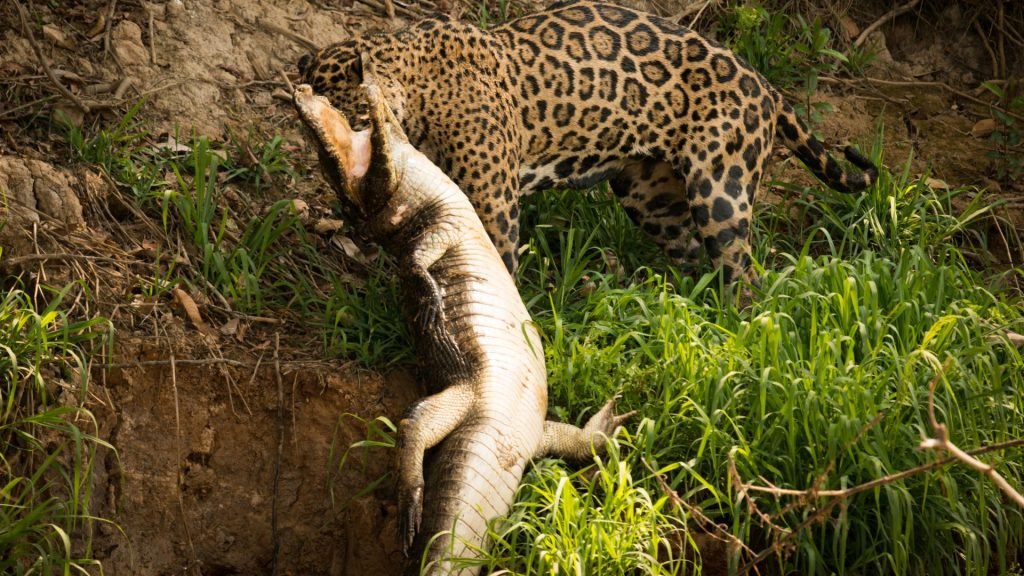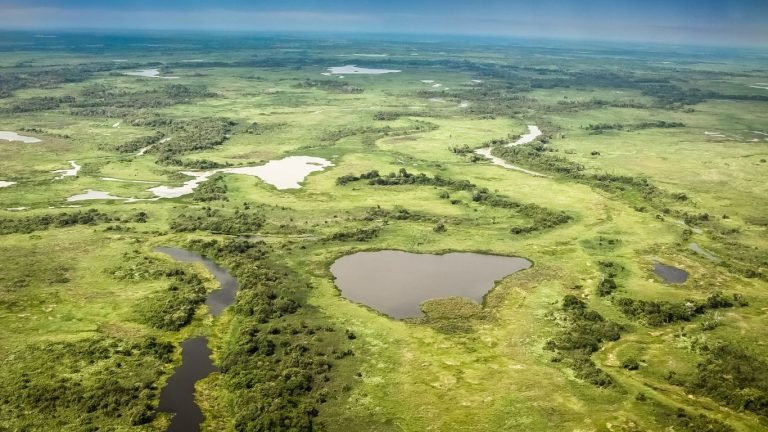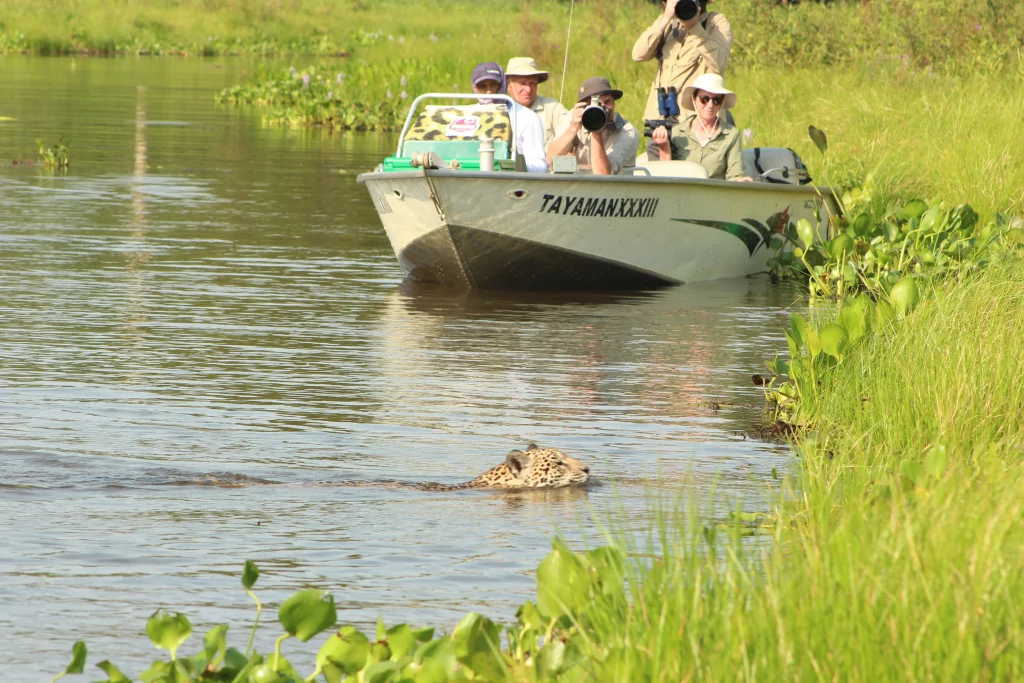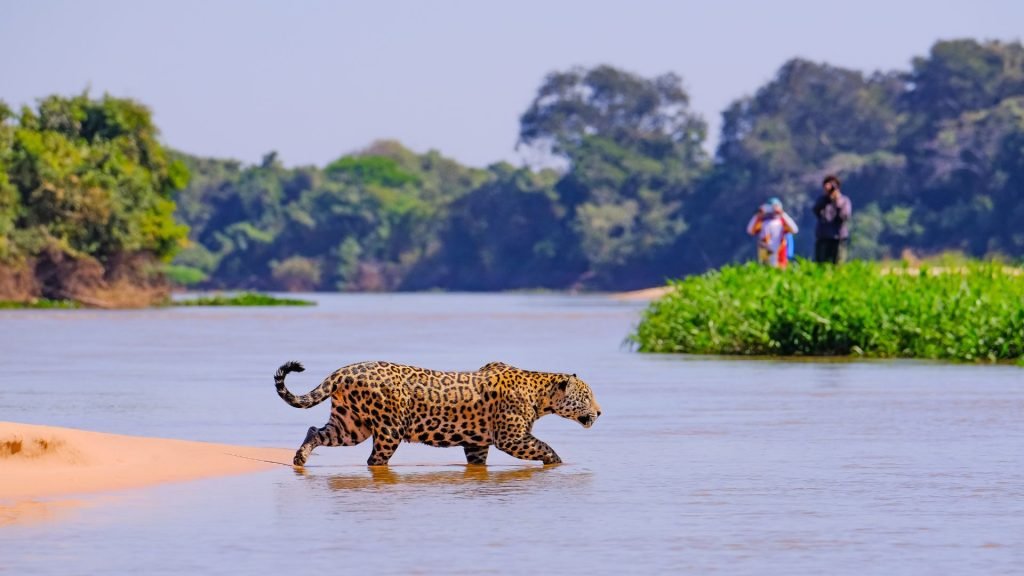Two Faces of the Same Natural Treasure: Pantanal South and Pantanal North
The Pantanal, one of the most impressive and diverse ecosystems in the world, is a true jewel of South America. Despite its geographical unity, we can divide the Pantanal into two distinct regions – the South Pantanal and the North Pantanal – each having its own unique characteristics and charms. While both share the same wild spirit and natural wealth, they offer different experiences for visitors looking to explore this ecological paradise.

Characteristics of the Southern Pantanal
People know the South Pantanal for its vast floodplains, which stretch across the states of Mato Grosso do Sul and part of Mato Grosso. A variety of habitats, including open grasslands, wetlands, riparian forests and savannahs, characterize this region. During the rainy season, water floods the landscape, transforming it into a mosaic of water mirrors and islands. This is when the South Pantanal becomes a paradise for birdwatching and for spotting aquatic animals such as caimans, capybaras and otters.
Characteristics of the Northern Pantanal
The North Pantanal, on the other hand, covers the northern part of Mato Grosso and part of Bolivia. This region is characterized by a more diverse topography, with hills and plateaus interspersed with flooded areas. The North Pantanal offers a unique experience of immersion in the flooded forest, where travelers can explore the dense riparian forests and discover the rich biodiversity that hides there. The North Pantanal forests are home to species such as jaguars, tapirs, giant anteaters and a variety of colorful birds.
Climatic differences
One notable difference between the two regions is the amount of rainfall they receive. While the South Pantanal tends to be wetter during the rainy season, The North Pantanal is influenced by different weather patterns and can experience variations in the amount of rainfall from one year to the next.
Activities in each region
In addition, the activities offered in each region may differ slightly. Both locations offer boat safaris, guided hikes and wildlife watching opportunities, but the South Pantanal may be more famous for its boat safaris due to the expansive wetlands, while The North Pantanal provides a more in-depth experience in the flooded forest.
In short, the difference between the South Pantanal and the North Pantanal lies in the nuances of their landscapes, biodiversity and geographical features. Both regions offer magical and educational experiences, allowing visitors to connect with nature in unique and unforgettable ways. Regardless of whether you choose to explore the South or the North, one thing is certain: the journey through the South Pantanal is an immersion in the wonders of nature and an opportunity to discover the secrets of one of the most extraordinary places on our planet.



